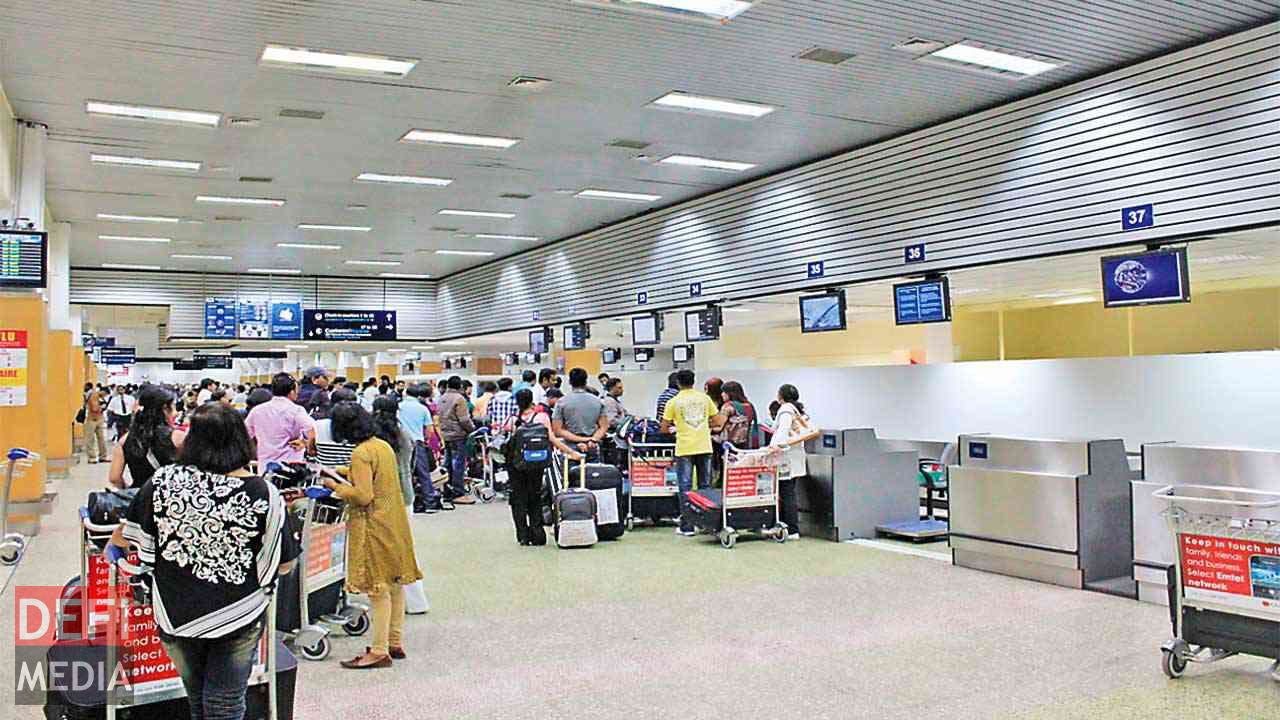
Mauritius will soon open itself to more foreign professionals, experts and investors following the signature of an MOU last Friday. What are the implications of the free movement of manpower on the country? News on Sunday reports...
Publicité
The need for foreign expertise in Mauritius has always been subject to debates. The free movement of businessmen and other professionals has been lengthily debated and reviewed by successive governments in a bid to promote investment and commercial exchanges with various countries.
Last Friday, the government signed a Memorandum of Understanding (MOU) for the free movement of professionals and investors. The four countries namely Mauritius, Seychelles, Zambia and Malawi, which have signed the MOU, will now regularly work through videoconference to see how to implement the various procedures and documentation to facilitate movement of professionals. In addition to this, Mauritius, Malawi, Zambia, Seychelles and Mozambique (the latter did not sign the MOU) are members of the Accelerated Programme for Economic Integration (APEI).
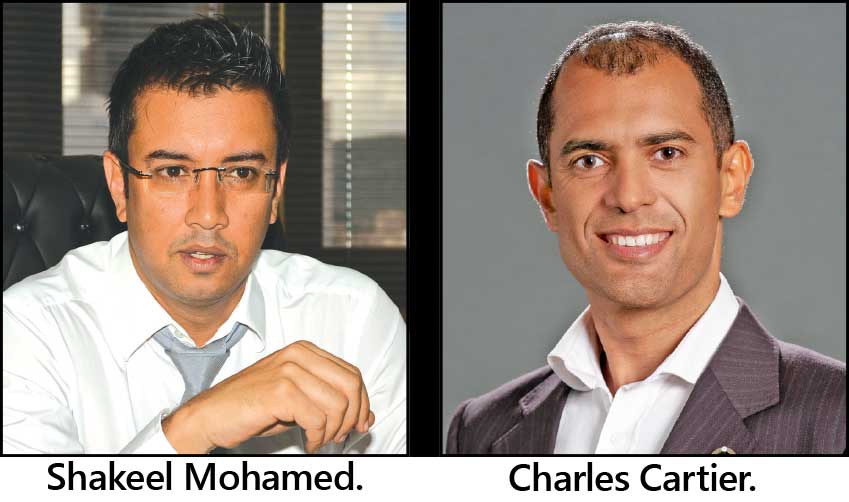 However, the question which remains is how far should Mauritius open itself to foreign expertise and what should be done to attract more foreign professionals and investors in the island? According to the former Minister of Labour Shakeel Mohamed “the politics practised by those who are self-centred has given rise to some apprehensions among Mauritians who believe that foreigners will take the jobs and that there will be no jobs for them.”
However, the question which remains is how far should Mauritius open itself to foreign expertise and what should be done to attract more foreign professionals and investors in the island? According to the former Minister of Labour Shakeel Mohamed “the politics practised by those who are self-centred has given rise to some apprehensions among Mauritians who believe that foreigners will take the jobs and that there will be no jobs for them.”
He explains that it is good for Mauritius to become a popular place for doing business but that we must learn from countries like Singapore, Hong Kong, Malaysia, and Indonesia that have opened up their borders. “Those countries have attracted and encouraged the coming of many major foreign experts in terms of start-ups. These start-ups have then generated wealth and created employment in these countries,” he uttered.
Shakeel Mohamed trusts that if Mauritius could also attract high net worth individuals who will invest in big businesses, which can become not only local but also global success stories; it will be beneficial for the country’s economy. “We must definitely encourage and facilitate the movement and employment of foreign professionals as it will generate wealth and create jobs in many sectors. We must attract high net worth individuals. However, we must give the necessary incentives for those kind of people to come over.”
The former Minister highlights that the government should not solely focus on the property offer to attract foreigners. “If we want to attract the best, we must also offer the best in terms of infrastructures such as roads, medical services, restaurants, schools, universities, IT centres, and connectivity with Africa, among others. If we had all these, it would have a domino effect,” he says.
Shakeel Mohamed also points out that the young generation has not been channelled to relevant career fields and this has given rise to an oversupply of professionals in certain sectors. “There are too many lawyers, accountants, doctors etc. in Mauritius. We have definitely failed on this aspect. We do not need not go towards brain drain but rather brain gain.”
On the other hand, according to Charles Cartier, President of Outsourcing & Telecommunications Association of Mauritius (OTAM), the country definitely needs foreign expertise in some areas. “You know the size of the workforce is very limited. To give you a sense of how small we are just imagine that we have only 20,000 employees in the ICT-BPO industry but that the five largest firms in the sector have a workforce which is bigger than the island’s population (above 1.2 million). The other limiting aspect and that our best students leave Mauritius right after college while very few of them come back. The acid test for this is very simple, I believe we have about a hundred students scoring 3 As every year at HSC, the number that come back can be counted on a single hand.”
He adds that as president of OTAM, he is told sad stories by professionals of the ICT sector every day. “On a monthly basis, I am told of similar stories where companies located in Mauritius have to let go of new deals and of job opportunities for Mauritians because of requirements for specific profiles that do not exist in Mauritius. This is sad because these projects would have been run by Mauritians and foreigners and because the process is so cumbersome that we lose the whole business. I have been in the outsourcing industry for 18 years and this has been a recurring theme in discussions throughout. I believe the sector would have been of a completely different scale if that had been understood and tackled.”
He trusts that what happens in Mauritius is that “people are afraid to give this flexibility to companies because they fear that companies will give local jobs to foreigners, this is a completely misconceived idea. When you get an outsourcing job requiring 150 English speakers, 50 French speakers, 10 German speakers, 10 Spanish speakers and 5 Arabic speakers we struggle to position Mauritius for 2 reasons: English speaking resources cost half of the price in Asian locations, and except for French, we have to find speakers of other languages. When we give the flexibility to companies to recruit foreigners the game changes. This example is equally applicable where IT competencies are required.” He strongly believes that “as long as we do not have a simple scheme for our companies we will continue to lose market shares and struggle to grow.”
In Figures
The percentage of active permits issued by BOI is as follows:
- Investor: 13.1%
- Professional: 72.8%
- Self Employed: 4.8%
- Retired Non-Citizen: 9.3%
The four nationalities with the highest number of Occupation Permits and Residence Permits issued are:
- French: 32%
- Indian: 19%
- South African: 10%
- Chinese: 9%
- 22% of holders of Occupation Permit under Professional category work in the ICT & Media sector.
- With regard to the Investor category, 16% of Occupation Permits were granted for investment in the Professional services sector and 13% in the financial services sector.
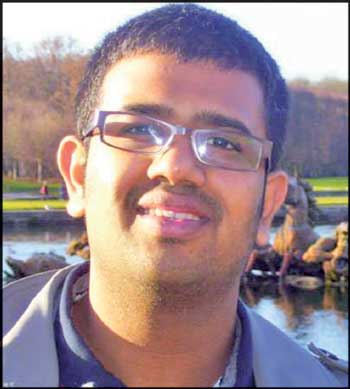 Akshay Seedoyal: “Migration is not fatal to any country”
Akshay Seedoyal: “Migration is not fatal to any country”
Lecturer Akshay Seedoyal explains that foreign expertise is an inherent and ephemeral component in accelerating human capital growth in a country. “It is in fact the basis for the consolidation of research and innovation in all spheres of work. Migration is not fatal to any country, as it brings more knowledge and technology transfer. Alongside, local workers and entrepreneurs should adapt themselves to the new culture of work resulting from migration, thus enhancing productivity in the country. Moreover, the migration rate of professionals to a country should be controlled properly by institutions concerned, for instance International Migration Organisation who work in concerted ways with the government. These institutions ought definitely to act as a watchdog so as to ensure the unemployment rate among locals is not hurt. In fact, migration should be conceptualised as exchange programs where the locals also unleash and/or learn and adapt to new skills as required from where the foreign experts originate from.”
Akshay Seedoyal reveals that currently Mauritius should open itself to foreign expertise. “We are molding a new economic architecture at the moment which shall be economic drivers in the coming decades. For instance, we lack many experts in the newly veiled Ocean and Blue Economy, namely marine biologists, energy experts, deep ocean water applications experts and so forth. Mauritius warrants foreign experts who are engaged in research, consultancy and proven-skills professionals who can stimulate productivity, research and development and growth in a country.”
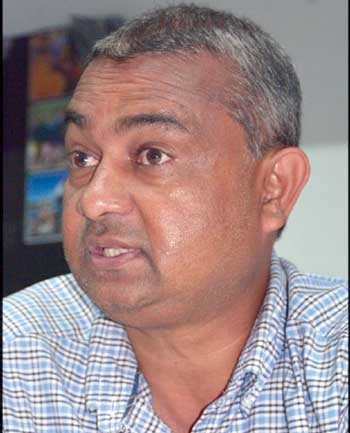 Reaz Chuttoo: “Mauritius needs foreign expertise”
Reaz Chuttoo: “Mauritius needs foreign expertise”
Trade unionist Reaz Chuttoo states that bringing foreign expertise to Mauritius depends on which field those competencies are required. “If Mauritius wants to develop its ocean economy, then it has no choice but to seek the help of foreign experts. Unfortunately, Mauritius needs foreign expertise as it has failed in channelling the youth to relevant career fields.”
The trade unionist argues that Mauritius should not facilitate migration but should rather regulate it. “The regulations concerning migration should be reviewed in order to avoid abuses. Foreign professionals should be brought in scarcity areas. Besides, Mauritius should lay emphasis on the transfer of knowledge. Before leaving Mauritius, the expert should train a Mauritian to replace him. This transfer of knowledge will eventually help the country. However, there is currently no such transfer. This is discouraging young professionals. With Mauritius becoming a hub of all sorts for Africa and African students coming over for their studies, local professionals will have a hard time. African professionals will prefer to work for a low salary. Mauritius must adopt the same strategy as India which exports its expertise and promote circular migration.”

Notre service WhatsApp. Vous êtes témoins d`un événement d`actualité ou d`une scène insolite? Envoyez-nous vos photos ou vidéos sur le 5 259 82 00 !













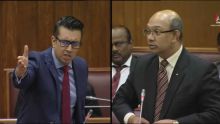
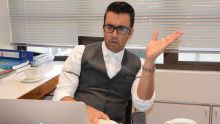
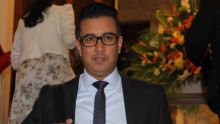

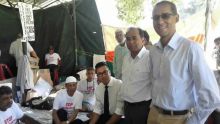
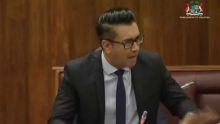
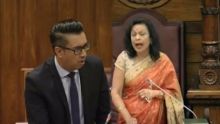
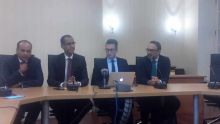
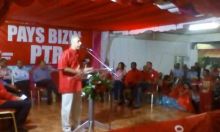
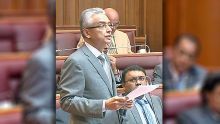







![[Info Soirée] : « bizin pa negliz bann slow learners »](https://defimedia.info/sites/default/files/styles/square_thumbnail/public/thumbnail_190425.jpg?itok=J--MzK_k)
